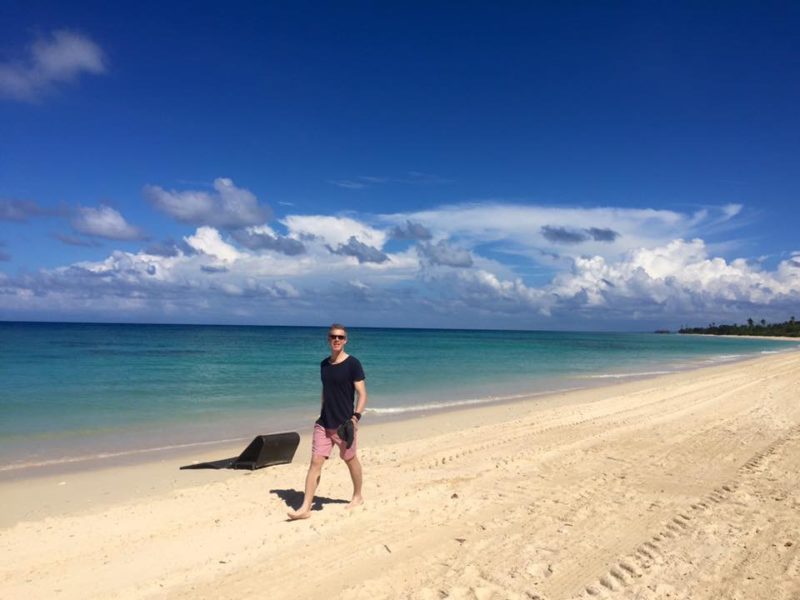I’ve always worried I would fail. Even though I never quite knew what success meant back then—and still don’t have a clear definition today—the nagging insecurity has always been there.
Many believe that a powerful motivational drive often seen in successful people stems from some deep-seated insecurity or fear. Why else would people wake up at ungodly hours and relentlessly push through their comfort zones? Is it a fear-fueled fire that propels us forward?
First, the beginning…
I was born in the United Kingdom but raised in New Zealand. My upbringing was middle class yet wonderful, overflowing with love. It was a perfect yet basic life. From as early as I can remember, I had a burning desire to build, grow, and conquer the world—I was never content to just be a passenger. I had an entrepreneurial spirit from the start, though in the 90s, New Zealand didn’t have much of an entrepreneurial culture. If you were an entrepreneur back then, you were on your own.
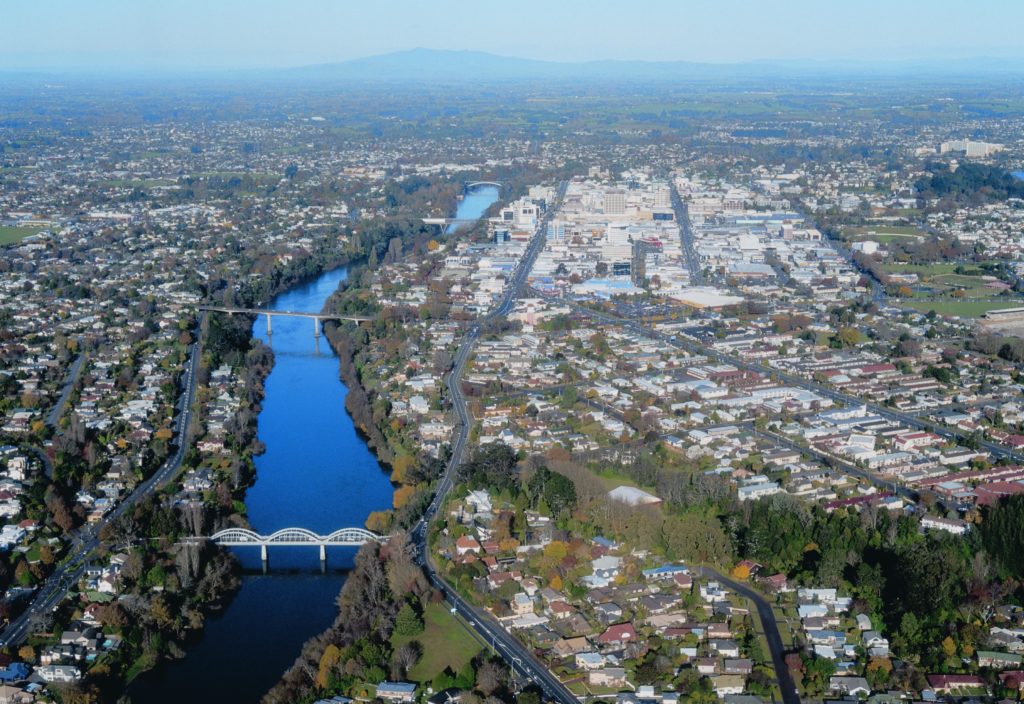
I got my first taste of business as a self-employed personal trainer at 17. It wasn’t wildly successful, but I learned a lot about business fundamentals: income, expenses, marketing, and customer service. I also realized how hard it was for a personal trainer to leverage their time, as they trade an hour of their time for a capped fee. Even the best trainers could only sell about 40 hours a week, which wasn’t the path to success I wanted.
Luckily, I sped through school. I wasn’t a great student—impatient, uninterested, and not fitting in—but I wasn’t a bad one either. With a bit of luck and some hard work, I graduated with a university degree at 19.
Sydney, London, and beyond
At 18, just before graduating, I moved from my small New Zealand hometown to the big city of Sydney, Australia. After two and a half years there, I traveled around South America for a year with a friend and eventually moved to London. By the time I landed in London at 21, I felt I’d wasted enough time. I wasn’t yet ‘successful’ (whatever that meant), and time was ticking.
In London, I saw opportunities in the property market. Rental yields were high, and bank interest rates were low. Determined, I saved as much as I could and took on credit card debt to secure a mortgage. Within six months, I had my first property. Six months later, I bought another, and nine months after that, another. I worked hard, learned as much as I could about the property market, and rode a big property wave. Within a few years, at 28, I had bought, renovated, and sold multiple properties and held a portfolio of 25+ properties worth many millions of dollars.
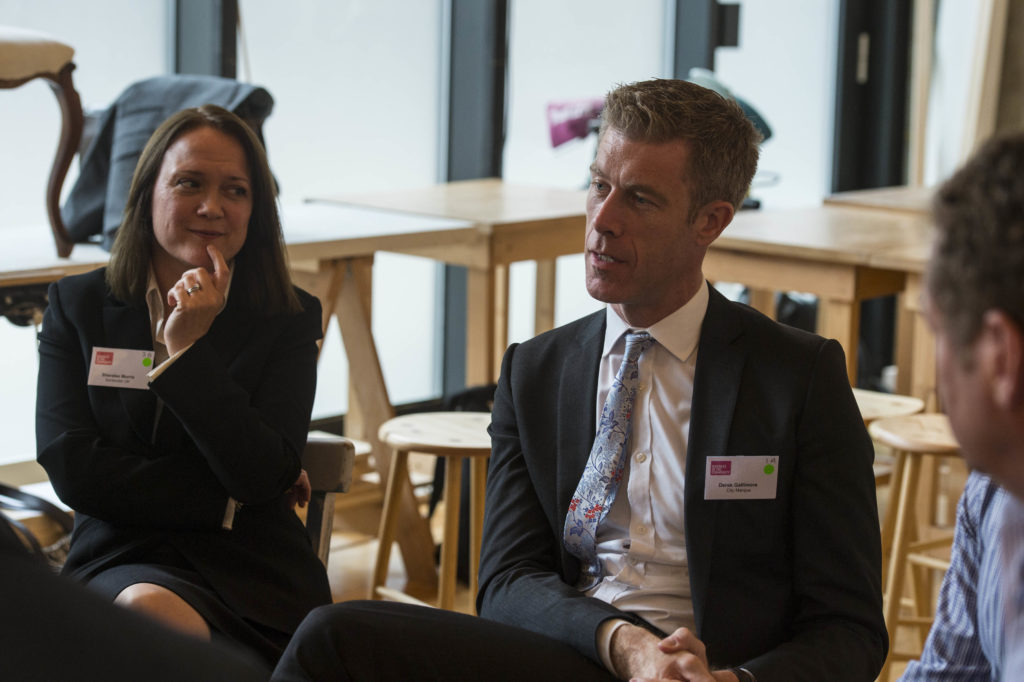
The wave collapsed in 2008 with the global financial crisis, but I was lucky and kept all my properties. However, the banking sector’s implosion meant I could no longer continue property development, so I looked for other opportunities. The closing of one chapter meant the opening of the next.
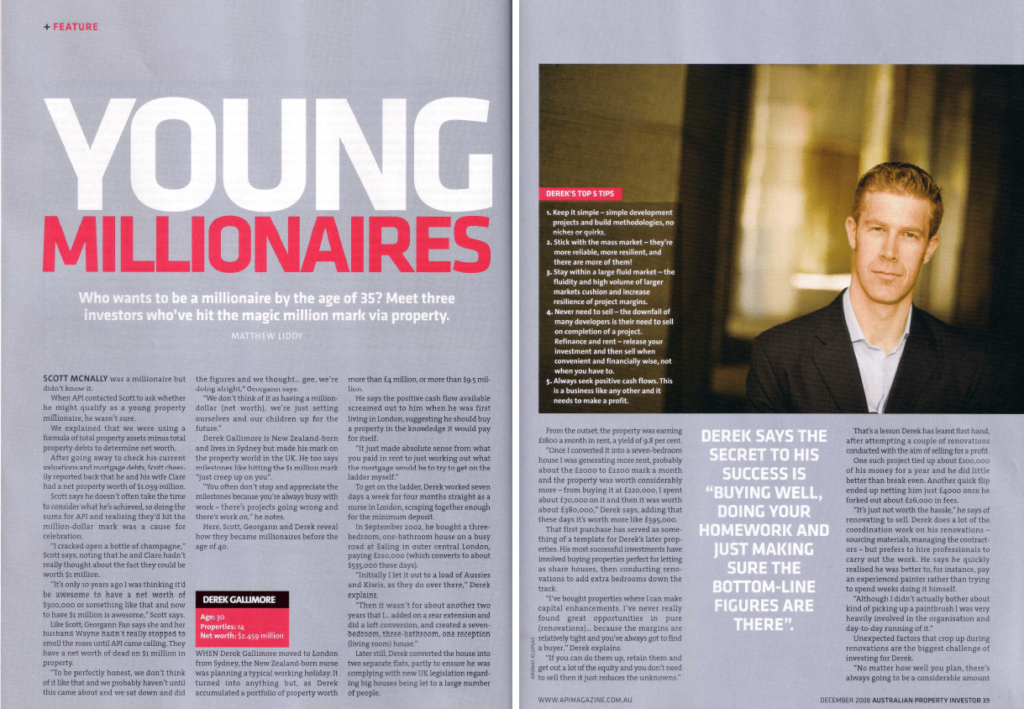
Serviced apartments
I found the perfect opportunity in serviced apartments due to the synergies with my property involvement. I started my services apartment business in London when it was a little-known sector, before Airbnb, and built a successful company with nearly $20m in annual revenues, 70 staff, and 220 apartments. It was boostrapped, and i owned 100%. But in 2016, after nine long years of incubating my startup, the company collapsed, which was devastating. I lost almost everything I had built.
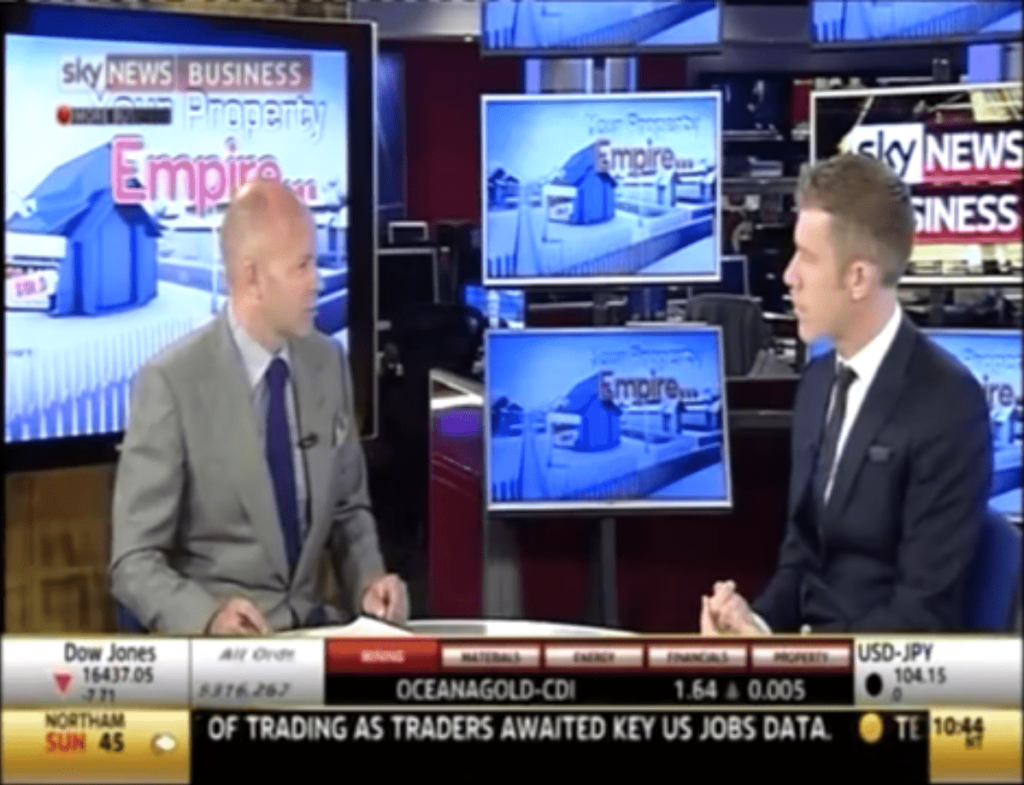
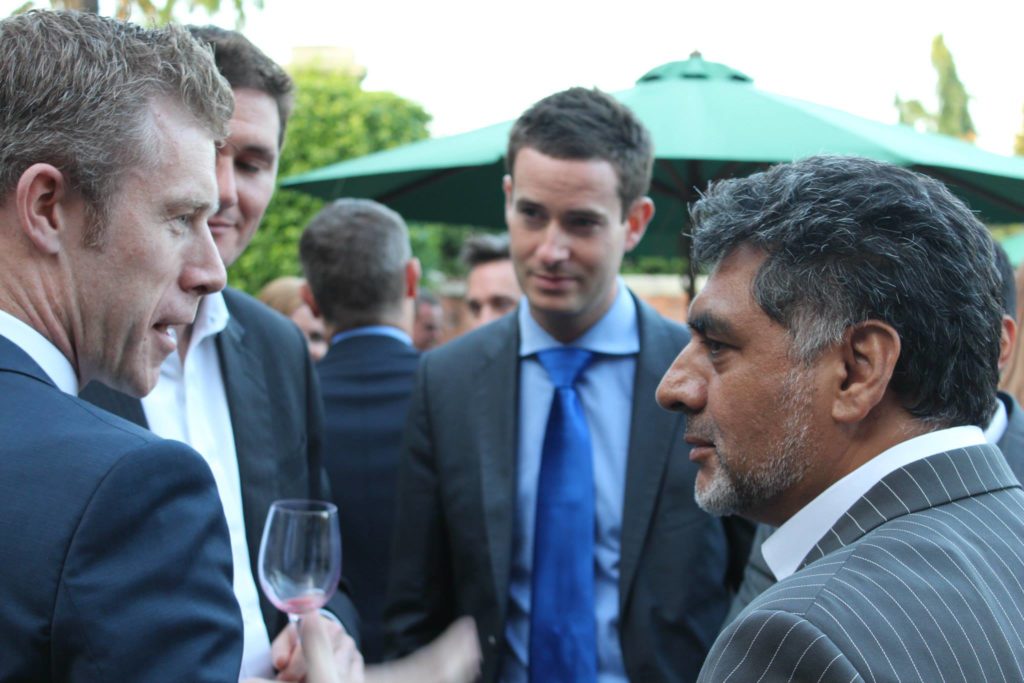
Rebuild
Despite the collapse, I still had a fire in my belly. Within days, I started rebuilding and launching new ventures. I’ve been in business for over 20 years, with diverse experiences and wisdom to draw from. Business is a lifelong chess game for me, and I’ve learned a lot from both my successes and failures.
Manila
A game-changing moment was in 2011 when I started outsourcing some of my staff for my serviced apartment business. I needed a 24/7 customer service operation for my growing company, which was unaffordable in London, so I looked to Manila, Philippines.
By 2014, my Manila office had grown to about 70 people, so i moved to the city, to focus on outsourcing – first with my original business, and then eventually with Outsource Accelerator.
Outsource Accelerator
Outsource Accelerator began in 2016 and quickly grew to become the world’s leading outsourcing marketplace, incubator, and advisory – with over 200 staff and generating over $1 billion in inbound outsourcing inquiries each year.
The platform is regarded as the leading source for independent outsourcing news, content, and special reports, and the interactive directory lists over 3,000 outsourcing firms globally. Special reports include the OA500 (objective index of the world’s top 500 outsourcing firms), and OA Outsourcing Impact Review (tracking the industry’s positive impact initiatives).
In 2022, I published Inside Outsourcing: How Remote Work, Offshoring, and Global Employment is Changing the World, which is widely regarded as the go-to reference for modern outsourcing.
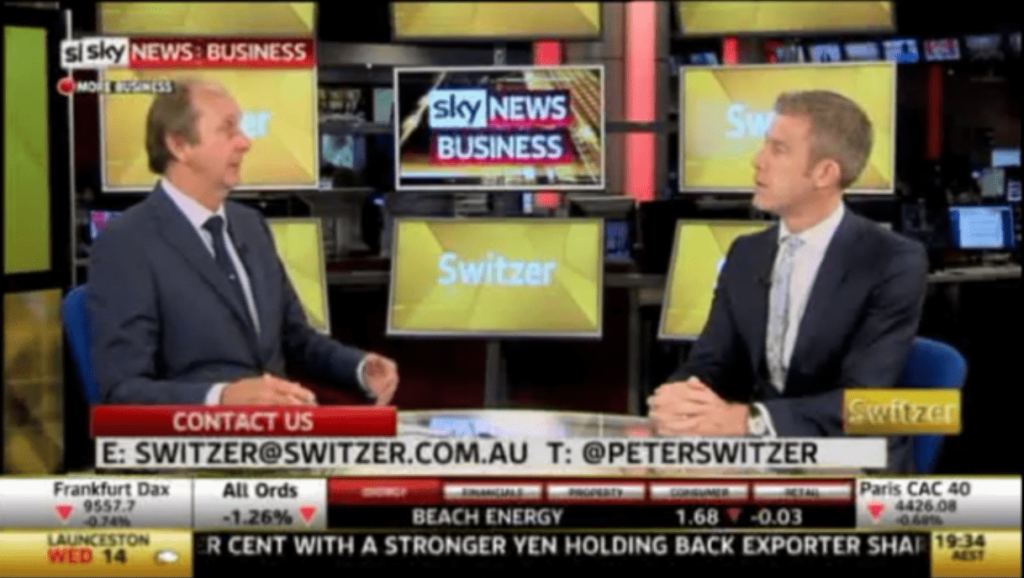
I’ve learned an immense amount though. I have experienced some incredible successes throughout my 20 years of
Derek Gallimore: guiding principles
I have four primary guiding principles.
A life less ordinary
Those of you reading this website, are likely to be in the top 1%, or certainly the top 10% of the world’s population. We are all incredibly lucky to be where we are and have the opportunities we do.
Committing to ‘a life less ordinary’ means that you’re not just taking life for granted. It means that you’re not just following a predetermined path, and blindly trudging through this life.
Someone once said that ‘most people die at 25, and are buried at 75’. I am all about conscious choice, and making the best of every day, and chasing after that life less ordinary!
Freedom and opportunity
The concepts of freedom and opportunity are conveniently a little broad. But, more and more, I’m realising that my key objective in life – and measures of success – is my freedom and opportunity.
With ample freedom and opportunity, you literally have anything and everything. With this in mind it’s about consciously building those freedoms and opportunities.
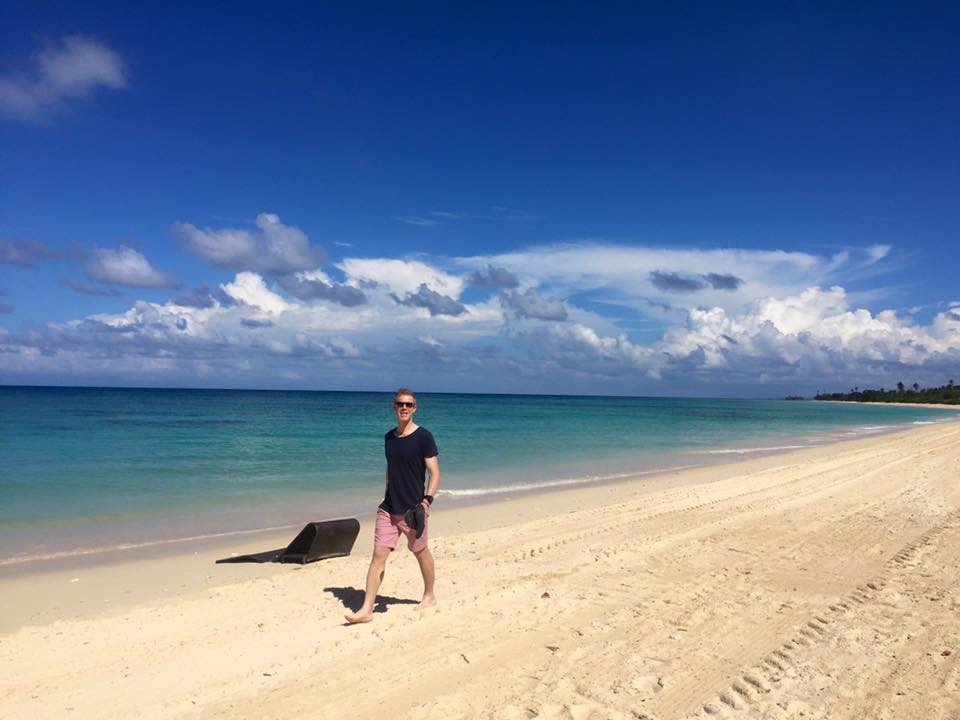
However, it’s about consciously and proactively protecting your existing freedoms and opportunities.
The ‘opportunity cost’ of something is a massive consideration in life. We only have one life, and we only have very limited time. For example, if you commit to a job for one year, then you have literally committed 2.5% of your (standard) working career to that decision. Is that the best use of that time?
Guarding your freedom and opportunity is paramount.
Lead by example
This is a simple principle, but so valid.
Do no harm
Equally simple, but valid. I don’t know what I want to do in life, and I don’t know if I’m ever going to affect significant positive change on the world (ie end world poverty); but at least I try and go through life with a minimum non-negotiable of doing no harm to anyone or anything.
As long as I ensure that no one and nothing is hurt on my journey, then that’s a pretty good start.
Derek Gallimore: interests
My core interests can be grouped into three basic areas. The three areas are very distinct, but also very closely aligned and overlapping:
(i) Health
(ii) Life
(iii) Business
Health
I have been heavily involved in health and fitness since about 16 years of age. Ironically, as a child, I was never into traditional sports. But at 16, as a stereotypical white skinny kid, I found salvation in my local gym. Over time, I became heavily involved in the gym scene and weight lifting culture. So much so, that at 18 I won the New Zealand National Teenage bodybuilding title.
Weightlifting was by no means a healthy sport, and it was good that I moved on from scene when I left for Australia at 18. But my weightlifting experience was a catalyst for my foray into personal training a general interest and appreciation for health, diet and optimising life.
Since those early days, I have moved a very long way from the weightlifting scene. I instead focus on key means of improving life, health-span and lifespan.
Fitness and challenge
Fitness is fun and rewarding. The best things in life are most often those that are hardest to come by, or earn. With this philosophy in mind, I like to regularly challenge myself. I have run a number of marathons, do a bit of ocean swimming, and try to regularly engage in pursuits that challenge me and push me beyond my comfort zone.
Over the last few years, I have developed a significant personal interest in longevity and biohacking. This area of health is enjoying a huge sub-culture following at the moment, and has caught the interest of some of the world’s most successful businessmen, and Silicon Valley elite.
Many in Silicon Valley, as a side, have turned their attention to the possibility that soon, a human might be able to considerably extend their health- and lifespan – and potentially even avoid death.
I’m a keen advocate of the Paleo, Bulletproof and ketogenic diet movements. None of them are a magic bullet, but these regimes expose some incredible inconvenient truths about the word’s misguided eating habits of the last 50-80 years.
Life
I feel a personal obligation to strive for a life less ordinary – as explored above. It’s a journey to seek a deeper meaning to life, via a path less trodden, and a journey that takes you beyond the limited expectations of the majority.
I get really perturbed by the adage that ‘most people die at 25, and are buried at 75’, and I’m determined to live as full a life as possible.
I’m also committed to living the best standard of life possible. This ties into the health and longevity considerations discussed above. At 39 years old, I feel physically and mentally stronger than ever. I am is committed to feeling as good as I does now, in another 20, 40 and 60 years’ time.
We’re only given one life, and that time is so limited. Life is so magic, and it’s an absolute tragedy if we don’t make the most of absolutely every moment we have.
Business
I eat, sleep and breathe business. Some might think this is a little shallow, and soulless. But I see business as a form beautiful art, and a life-long chess game. It’s a force for good, and a pursuit which, if properly applied, can solve world poverty and catalyse the most incredible human, and world development.
Business doesn’t exist in isolation. And certainly for me, business is so very tightly woven into everything I do, and certainly into my other core interests of health and life.
Derek Gallimore: influence
It’s hard to identify and ringfence specific influences – an average life is influenced in so many ways, from so many different things.
I credit a lot of my motivation to that string fire that burns inside me.
Below is a book which had a huge influence on me when I first read it, at about 20 years old. And there’s a relatively recent article, which really resonates with me also.
Maverick
This book was a game changer for me. I was only 20 when I first read it, but it so profoundly affected the way I thought about business – and what the concept of business can represent.
Maverick, written by Ricardo Semler, a Brazilian manufacturing company CEO, transformed his standard hierarchical business into a truly democratic community-led organisation. He built a culture which tipped the pyramid upside down – there were no managers, and zero HR, and the only rules were those devised by the people for the people themselves.
I’ve read this book numerous times since, and it excites me more each time. I try and build my businesses holding these philosophies close to heart.
Are you willing to suffer?
This i recent article by Mark Mansion, The Most Important Question of Your Life really resonated with me. I encourage everyone to read it.
I life and business, I loosely subscribe to the philosophy of Stoicism, and believes that people too often not only want, but expect, the path of least resistance.
I believe that the true fruits of life often come through challenge and hardship. Improvement and value is seldom attained without pushing through comfort zones, and challenging expected limitations.
This article confronts those that want to succeed, but aren’t necessarily willing to pay the price – or any price at all. Of course, everyone wants happiness, success and reward, this is a given. But the real question should be: what are you willing to pay for this, what are you willing to sacrifice, and what are you willing to give up. This part of the success equation is commonly overlooked, or avoided.

